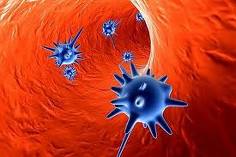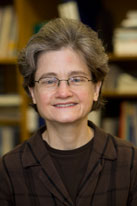 While the study released today about chronic fatigue syndrome will not, in and of itself, resolve the question of whether the syndrome can be linked to a recently discovered retrovirus, these findings — published this morning on-line in the proceedings of the National Academy of Sciences — will be a an intriguing addition to last fall’s study in the journal Science asserting such a link.
While the study released today about chronic fatigue syndrome will not, in and of itself, resolve the question of whether the syndrome can be linked to a recently discovered retrovirus, these findings — published this morning on-line in the proceedings of the National Academy of Sciences — will be a an intriguing addition to last fall’s study in the journal Science asserting such a link.
This might be a good occasion to make a point about the sometimes lengthy and confused period when new, evidence-based research about a condition enters a cultural arena that had previously been occupied primarily by the deeply-felt lived experiences of those who have lived with the condition.
This confrontation between new research findings and lived-experience is often highly contentious. Sometimes a research finding is reported in the media in a way that seems to negate the very real pain that people have lived with. The subtext of media accounts might be reduced to: “you may have thought something was the matter with you, but now we know there was nothing wrong.”
And sometimes the report of a research finding seems to fully confirm the reality of painful conditions that had previously been doubted and even ridiculed. “You know all that pain that you had been feeling? Well now we know that it was real.” As if pain cannot be real until a refereed journal has said so.
My point is that this kind of oversimplified and reductionist coverage of complex scientific research is almost always unhelpful and confusing to an information-hungry public. Scientific consensus emerges over time, despite the popular misperception that one new study can turn the world on its head. Of course, there are times when one study can be revolutionary, but more often consensus emerges slowly.
And even when consensus seems close, that evidence-based consensus can and must have its reckoning with the day-to-day clinical findings and experiences of patients and healthcare professionals. Slowly and painfully, some rough version of truth or truths emerges.
The problem is that media and cultural institutions are almost exclusively focused on discrete incidents, and very seldom successful at covering extended periods in which truth unfolds in a complicated and nonlinear manner.
In fact, sometimes I think that media and science occupy distinctly different worlds: In media-culture world, truth is depicted as manifesting itself in specific, dramatic stories about specific people and specific incidents. In science-world, truth often emerges in a gallingly incremental way. What is true can become untrue. Or what has been dismissed as psychosomatic can be revealed to have had a previously unknown organic cause.
Perhaps one solution would be for the popular culture to begin to jettison what I sometimes think of as the “Salk False Memory Syndrome.” Don’t get me wrong. I have personal reasons to revere Jonas Salk. I lived on a block with several kids for whom the vaccine came too late. I still can see my mother’s face as we stood in line to be immunized during the first year the vaccine was available.
But have you ever noticed how, as the years have passed, the complex and contentious process of discovering a polio vaccine has lost all of its nuance, complexity, missteps, and even political conflict? We look back, and – filled with memories of gratitude and relief — mistakenly imagine one lone, courageous scientist suddenly announcing to the world that polio had been cured.
Of course, this romantic narrative has been brilliantly debunked by a Pulitzer prize-winning historian and several accomplished filmmakers. The real story was drenched in conflict, dizzying u-turns, and devastating dead ends.
But in an era of increasingly evidence-based medicine, there could hardly be a better time for those covering science and medicine to get comfortable with the distinctly uncomfortable fact that science can be messy, time-consuming, and frustratingly inconclusive.
Steve Gorelick, Senior Fellow CHMP, Professor in the Department of Film and Media Studies at Hunter College of the City University of New York.
While the study released today about chronic





